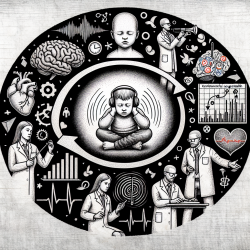Introduction
The link between sensory loss and dementia is a growing area of interest in the field of neurology. The research article "Sensory Loss and Risk of Dementia" provides a comprehensive review of the neurobiological evidence connecting sensory modalities such as olfaction, vision, and hearing to specific dementias. This blog explores how practitioners can implement these findings to improve their skills and encourages further research in this crucial area.
Understanding the Link
Sensory loss in olfaction, vision, and hearing is identified as a risk factor for dementia, but the underlying mechanisms remain unclear. The article highlights that olfactory deficits can be linked to neuropathologic changes in diseases like Alzheimer’s and Parkinson’s, while visual and hearing impairments may indicate susceptibility to dementia through various mechanisms.
Practical Implications for Practitioners
Practitioners can take several steps to incorporate these findings into their practice:
- Early Screening: Implement routine sensory screenings for patients, particularly those in midlife, to identify potential risks early.
- Comprehensive Assessments: Include sensory assessments as part of cognitive evaluations to better understand the patient's overall risk profile.
- Interdisciplinary Approach: Collaborate with audiologists, ophthalmologists, and neurologists to create a comprehensive care plan for patients with sensory impairments.
Encouraging Further Research
The article calls for further research to clarify the specific and synergistic effects of sensory impairment on dementia. Practitioners are encouraged to participate in or support studies that explore:
- The interaction between sensory loss and neurodegenerative biomarkers.
- The potential for sensory manipulation as a management strategy for dementia risk.
- The impact of treating sensory impairments on dementia progression.
Conclusion
Understanding the relationship between sensory loss and dementia is crucial for developing effective prevention and management strategies. By integrating these research findings into practice and supporting further studies, practitioners can play a vital role in advancing the care of individuals at risk of dementia.
To read the original research paper, please follow this link: Sensory Loss and Risk of Dementia.










